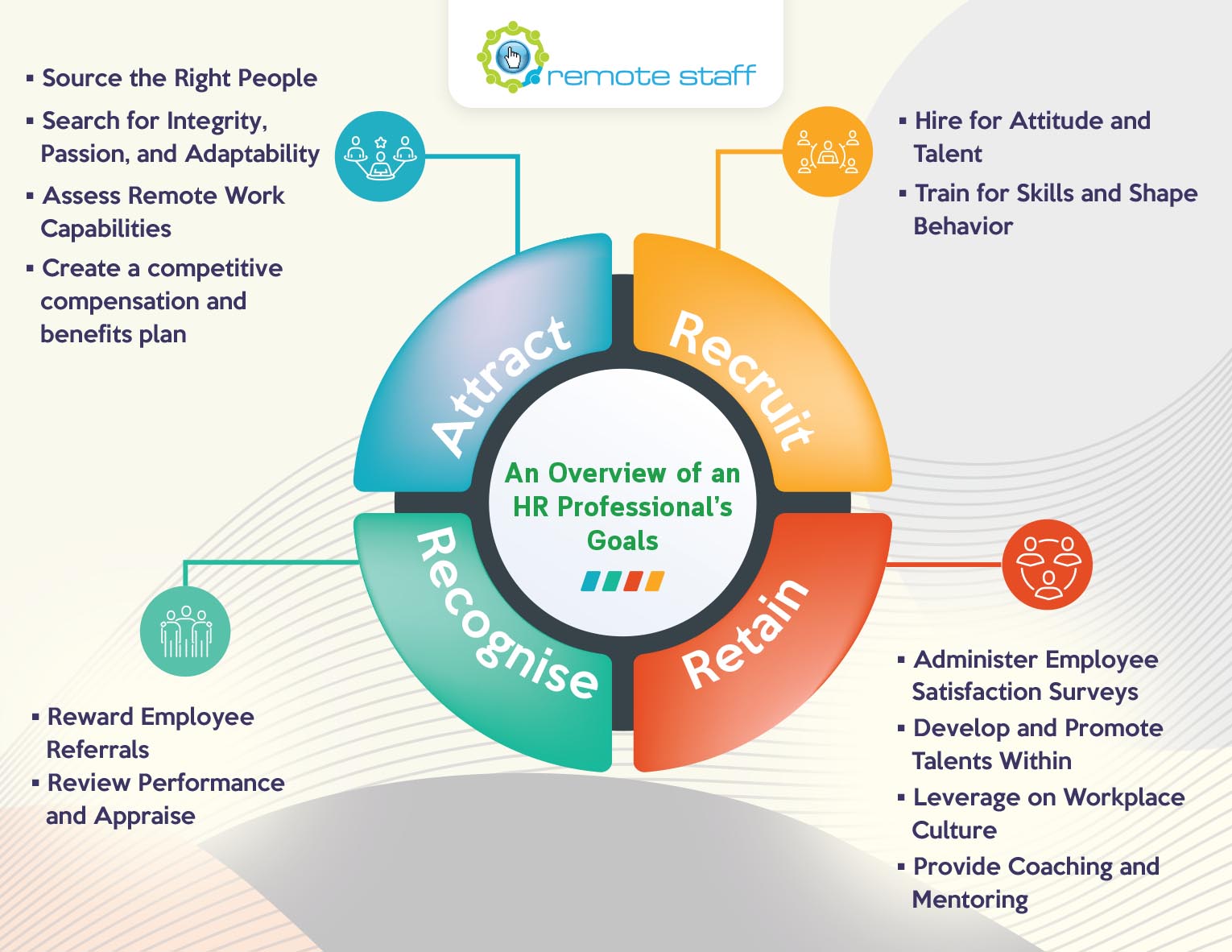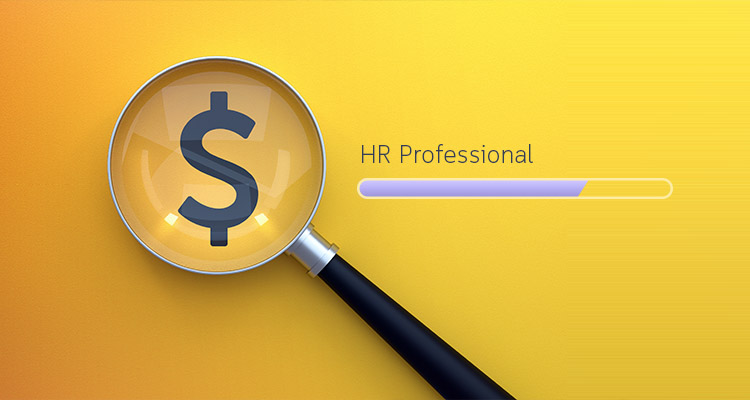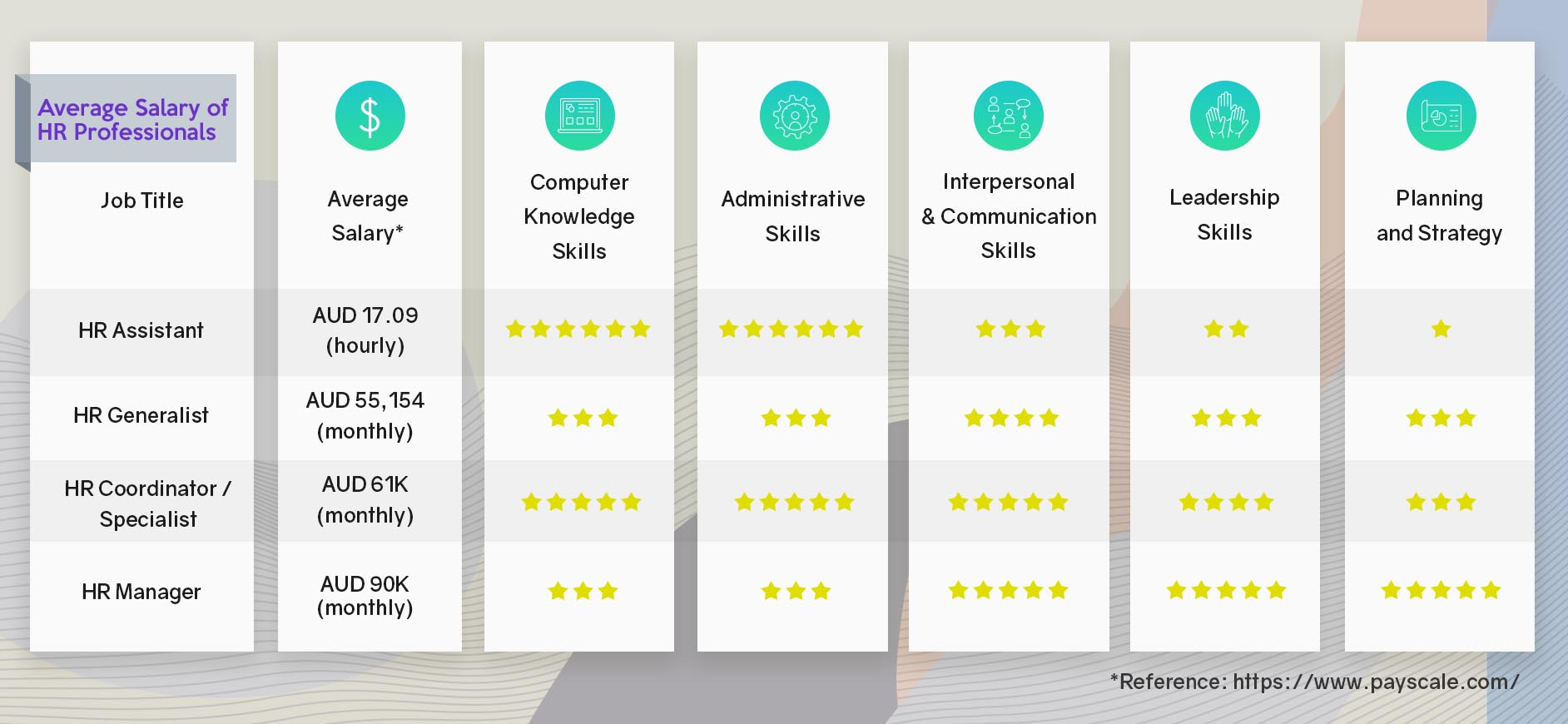Once in a quarterly business review, a group of operational team leaders laughed when I suggested involving HR in our project for the following quarter. They said that HR will only slow the project down. Furthermore, they emphasized that we can do it all alone.
That’s the impression we all have with HR – they’re like humps in a road where you are driving fast to get to a destination but you need to slow down when you see them.
Human Resources (HR) is much more than clerical work and recruiting for more staff. It is a vast endeavor that encompasses the diversity and complicated nature of human emotions and decision-making. After all, your remote employees are your most valuable asset.

What exactly is HR?
HR is a collection of duties and obligations about people who work for your company or organization. It is commonly divided into four categories namely: compensation and benefits, recruitment, employee engagement, and training and development. Some were known by a different name altogether. Their names changed as the way businesses operate also changed through time and demand.
Here is an overview of an HR professional’s goals in an employee’s life cycle in the organization:

Each of these phases has specific tasks and goals that impact the employees’ welfare.

Why might your remote team benefit from having an HR professional?
Having an HR professional in your organization will aid you in the following aspects:
- Strategically positioning your people as your unique asset by improving workplace conditions and culture
- Properly prepare for changes inside and outside your organization
- Execute your business vision through your people
- Retain uniquely valued talents especially ones developed within your organisation
What separates a good HR professional for remote teams versus that of a traditional locally-based HR is their ability to conceptualize policies and procedures that help make virtual roles and responsibilities thrive and be sustainable.

Which HR professionals can you get for your small business?
Most HR professionals start as a generalist, like startup founders like you. They perform tasks in all the parts of the business long before they were divided into sections called departments. Over time, they do still gravitate towards a specific HR function that they specialize in.
To determine whether you need a generalist or specialist for your HR task, assess your business’s needs first and outline the goals you’ll set for this HR professional to achieve.
You need an HR professional to objectively assess the options to questions such as:
- How can I tell my remote workers that [bad news]? When is the best time?
- How many people do I need to be part of [team] to generate X amount next year?
- What does an effective reward system look like for [name of the team]?
- How do I know when to add a new team member or supervisor for my team or staff?
- Why did [staff names] leave? Is there anything we could have done differently to keep them?
- When do I need to hire additional staff?
- What can I do to motivate my staff?
- I want to promote [name of staff] to be [title/position]. How do I prepare them?
- How will my decision on [business plan] affect my bottom line?

How do I know if my team needs an HR professional?
You should start considering sourcing and interviewing for an HR professional if you want the following for your business:
1. Add value to your clients
To add value to your clients by working through your existing workforce. HR professionals ideate and execute the policies that support the kind of work environment where workers can be their utmost best.
2. Create recruitment strategies for future job roles
As job roles become more fluid, HR should plan and source well for the right people to fit into the roles you craft for your business.
3. Ensure compliance with labor laws
Working knowledge and understanding of these laws and regulations will suffice. This role may need a dedicated HR coordinator or an HR generalist specializing in working with labor unions and relevant agencies.
4. Manage talent better
Whether you’re restructuring your team or you want to replace some of your staff, you need HR’s guidance to do those.
5. Develop and implement policies
Making the house rules is one step in keeping bludgers at bay, but implementing them is a whole nother story. Proper execution takes time and tact which your HR can handle for you.
6. Forecast a competitive compensation and benefits package
Gathering, comparing, and analyzing data to derive the right package to attract the right talent for your business.
7. Aid in preparing for positive and negative attrition
Attrition is inevitable because people change their minds all the time. The question in every attrition is how fast can we add or replace the vacant role.
8. Digitize the redundant paperwork
Your HR should be able to support all team members effectively and efficiently, barring differences in location, timezone, schedules, roles, and functions. The use of automated solutions and collaborative applications should help lessen paperwork.
9. Visualize the future of the workplace
You need someone who can watch your six when it comes to HR trends. If you want to stay ahead of the curve, you need someone who is at their feet in completing tasks, planning, and always preparing for the future.

How much will it cost me to hire an HR professional?
Depending on the scope and problems you want your HR person to solve, the salary needs to match your skills. Below is a sample outlining the skills and their corresponding pay:

When is it necessary to hire an HR Manager?
An HR Manager is necessary when you want your present manpower capabilities fit for the future changes you want to make.
The ideal HR Manager should have the open mind to make changes also with traditional HR knowledge embedded in them. Usually, the manager is responsible for planning strategically for the whole organization in terms of capability, leadership, culture, rewards, and workplace safety – all while watching your bottom line.

There are five C’s you can summarize the objectives of an HR professional in general:
1. Contentment
This covers Employee Engagement, Compensation, and Benefits, Rewards, and Recognition
Is my staff happy?
If yes, how happy? What makes them happy?
What will make my staff sad? Or leave?
Will my staff stay happy when we change___?
2. Competence
This covers Performance Metrics and Quality
How well can my staff do their job?
How efficient is my staff in their role?
3. Confidence
This covers Learning and Development, Organizational Development
Is my staff ready to take on more responsibilities?
Will my staff be effective in the role?
Will my staff be able to help me in the new role?
4. Compliance
This covers Employee Relations and Labor Laws
Am I fair to my staff?
Am I following the rules of my/their community/country?
Do I document our agreements properly?
5. Competitive
This covers Talent Acquisition and Retention and Succession Planning
How unique are my staff’s talents across similar industries?
How likely is my staff to stay for X number of years?
What can my staff’s future be beyond his/her role?
How can my staff transfer their knowledge and skills to the new employees?

What does HR look like for small businesses?
Most small companies adopt a lean HR setup where they add a team member whenever the tasks are greater than the number of employees doing HR work. There are alternatives to having a whole HR team for your small business.
Take a look at the examples below:
1. Assign some HR tasks to your Admin Assistant
Determine which tasks can be assigned to existing leaders or managers in your organization. Those tasks should require little training and minimal analysis.
For example, the easiest to delegate is the administrative tasks like the following below:
-
- Tracking, collating and summarizing employee timesheets, payroll, and vacation leaves
- Creating job descriptions for vacant positions
- Creating schedules and templates for work and company-wide announcements or greetings
- Creating interview questions and screening applicants
- Mapping organizational charts (per department)
- Creating templates for any documentation required for employees or remote workers
2. Develop current leadership with an HR mindset
All managers are HR managers. Once an individual contributor assumes the responsibilities of being a leader, they assume the responsibility of not just their own performance and well-being, but also that of their team members.
With that, when a person gets promoted or holds a leadership position, a heart for service should be at the core of what they do. However, this alternative will still heavily rely on your strategic and critical planning.
3. Hire a Good HR Manager
Obviously, the first two would require that the strategic planning for your people will still come from you. When you’re ready to delegate, having one good HR Manager can be your check and balance while executing the vision through working with your current manpower.

What are the Characteristics of a Good HR Manager?
Being an HR professional is more of a vocation than a profession. With the word “human” in your job role, it is imperative that you love interacting with people and helping them be better in their professional and personal lives. Without this genuine interest in improving the lives of the people you serve, an HR professional cannot effectively convince people that they have their best interests in mind.
Here are some concrete traits that good HR Managers possess:
1. Integrous
The HR Manager will be the beacon of truth so employees should be able to trust them no matter how distasteful the news maybe. Without integrity, leaders cannot expect their workers to trust leaders and be trustworthy in return.
Part of having integrity is being objective when giving advice. Using data as leverage, good HR advice can be pivotal in the changes leaders intend to make.
2. Inquisitive and Resourceful
Has the attitude of “how might we” instead of “that can’t be” when faced with familiar problems in different situations.
3. Proactive
The best HR manager is proactive in looking for ways to improve employee and customer experience rather than firefighting escalations one after the other. The goal in fact is to be ahead of these “issues” before it becomes burdensome.
4. Open-minded and Teachable
Unlearning things is tough but modern HR practices are needed to keep up with the demands of the workplace. Every conversation can be a teachable moment for an HR personnel, and only the ones who are willing to adapt can be effective in their role.
5. Conscious on Communicating with Heart
HR should be able to articulate the culture through day-to-day decisions and interactions with people in all communication channels. They should show empathy and translate the message in a way that it will be most positively received.
6. Assertive
The most common misconception that others have of HR professionals is that they know exactly what needs to be done. However, they are emotionally charged and fallible like us.
Assertiveness in admitting when there are mistakes and how they get back up and work towards correcting them shows good character. All workers should emulate traits like ownership and overcoming challenges. And who better to demonstrate these to them but your HR professionals.
7. Strong Business Acumen
HR should be able to comprehend how high-level decisions can impact the people at the very bottom of your organization. Not only that, they should be able to explain why those business decisions have to be made for frontline workers.
HR Managers should have a strong affinity for identifying and solving problems and teach important financial information whenever applicable.
Since an HR professional is at the frontline of the “people business”, it is critical that these characteristics and values are exhibited directly or indirectly.

What’s next?
No one could have prepared us for a pandemic to happen almost instantaneously. If anything, 2020 propelled the workplace to be more flexible and output-based, forcing more companies to really think about remote work capabilities as an answer to personalise work experience.
RemoteStaff has been in the staffing business for more than 13 years. With the growing demand for business services, we have screened HR candidates ready to support you virtually with various HR tasks.
Give us a call or schedule a callback and let’s future-proof your business together.




















